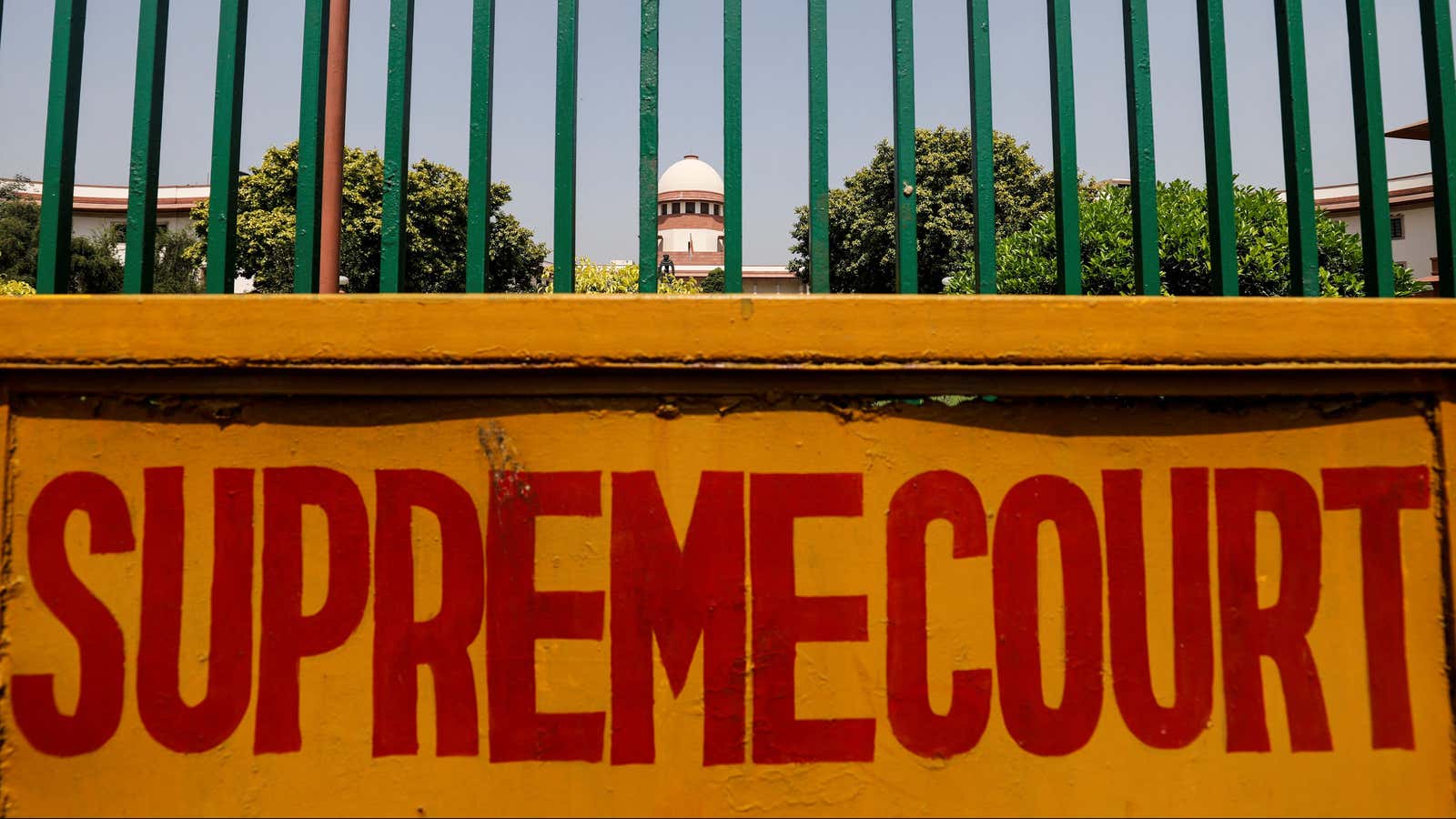The supreme court today (Nov. 9) ended one of India’s most fractious and long-running land disputes.
In a unanimous decision, the five-judge bench ruled that the Hindu groups will get possession of the disputed site in Ayodhya, Uttar Pradesh, where once the Babri mosque stood. The mosque was demolished in 1992 by a Hindu nationalist mob. The court directed that a suitable plot of alternative land measuring five acres shall be given to the Sunni Waqf Board, which had been fighting for the restoration of its ownership of the land.
“Muslims have presented no evidence of exclusive possession prior to 1857. But, thereafter they offered namaz there till they were ousted in 1949 through desecration,” chief justice Ranjan Gogoi said while reading the judgement on behalf of the other judges, according to media reports. The other members of the bench were justices SA Bobde, DY Chandrachud, Ashok Bhushan, and SA Nazeer.
The apex court further directed the prime minister Narendra Modi’s government to formulate a scheme within three months to set up a trust for the construction of a temple at the disputed structure.
The supreme court agreed with the contention that Babri Masjid was not constructed on vacant land. It said the underlying structure was not of Islamic tradition.
Reacting to the judgment, Zafaryab Jilani, the advocate of Sunni Waqf Board, which has been fighting the case for decades, said, “We respect the judgment but we are not satisfied, we will decide further course of action.”
What happened so far?
The Hindu parties, during the hearing, had argued that the entire 2.77 acres of land is the “janmasthan” (birthplace) of lord Ram while the Muslim parties, as represented by the Babri Masjid Action Committee (BAC), claimed they had ownership of the land since 1528 when the mosque was built.
On Oct. 16, India’s top court had concluded hearing in the politically sensitive case and reserved the judgment. The bench heard the arguments for 40 days.
The constitution bench began day-to-day proceedings on Aug. 6 after mediation proceedings failed. The three-member mediation panel was headed by former supreme court judge FMI Kalifullah. The other members were spiritualist Ravi Shankar and senior advocate Sriram Panchu.
What next?
The momentous judgment comes merely weeks before the 27th anniversary of the demolition of the Babri Masjid on Dec. 6, 1992. Given the sensitive nature of the case, the state and central governments have been on edge.
Over the past few days, around 4,000 personnel of the central armed police forces have been deployed in and around the disputed site at Ayodhya.
A News18 news report said the intelligence bureau (IB) has done a review of important religious places in Uttar Pradesh and special security plans have been rolled out for Ayodhya, Mathura, and Kashi.
For precautionary measures, section 144 of the Indian Penal Code has been imposed in parts of the country and will continue for the next two months. This section bars the assembly of people in groups in public places.
In Uttar Pradesh, OP Singh, director-general of police, assured on Nov. 4 that the state police is ready to handle any situation. If needed the National Security Act (NSA) will be imposed on elements attempting to disrupt law and order, he said.
Yesterday (Nov. 11), prime minister Narendra Modi asked citizens to stay calm and appealed for peace and harmony.
The ruling Bharatiya Janata Party (BJP)’s ideological mothership, the Rashtriya Swayamsevak Sangh (RSS), asked its volunteers to accept the verdict irrespective of whomsoever it favours.
